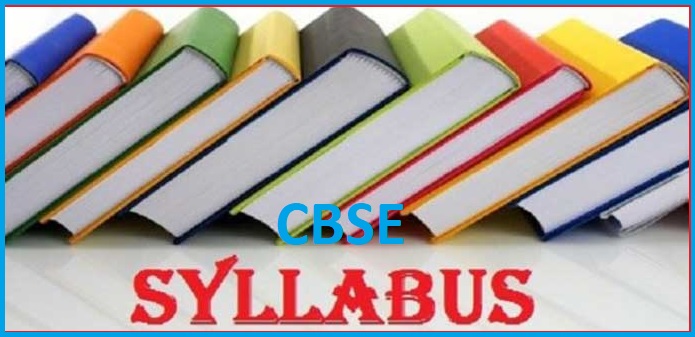The subject of Chemistry comprises of all the important topics relevant to the board exam as well as different competitive exams. CBSE Class 12 Chemistry Syllabus 2024 can familiarize the students with all the important topics incorporated in these various units. Questions carrying a total of 70 marks will be asked in the board exams in two terms from these topics and therefore it is important to know these topics in detail. The comprehensive CBSE class 12 syllabus for Chemistry exam can be found from this post. The practical exam will carry the rest 30 marks, the details of which have also been provided below.
Unit-wise CBSE Class 12 Chemistry Syllabus 2024-25
CBSE syllabus of Chemistry for class 12 comprises of 70 marks. The important topics related to the different units under the Chemistry subjects are provided below.
Unit II: Solutions 10 Periods
Types of solutions, expression of concentration of solutions of solids in liquids, solubility of gases in liquids, solid solutions, Raoult’s law, colligative properties– relative lowering of vapour pressure, elevation of boiling point, depression of freezing point, osmotic pressure, determination of molecular masses using colligative properties, abnormal molecular mass, Van’t Hoff factor.
Unit III: Electrochemistry 12 Periods
Redox reactions, EMF of a cell, standard electrode potential, Nernst equation and its application to chemical cells, Relation between Gibbs energy change and EMF of a cell, conductance in electrolytic solutions, specific and molar conductivity, variations of conductivity with concentration, Kohlrausch’s Law, electrolysis and law of electrolysis (elementary idea), dry cell–electrolytic cells and Galvanic cells, lead accumulator, fuel cells, corrosion.
Unit IV: Chemical Kinetics 10 Periods
Rate of a reaction (Average and instantaneous), factors affecting rate of reaction: concentration, temperature, catalyst; order and molecularity of a reaction, rate law and specific rate constant, integrated rate equations and half–life (only for zero and first order reactions), concept of collision theory (elementary idea, no mathematical treatment), activation energy, Arrhenius equation.
Unit VIII: d and f Block Elements 12 Periods
General introduction, electronic configuration, occurrence and characteristics of transition metals, general trends in properties of the first–row transition metals – metallic character, ionization enthalpy, oxidation states, ionic radii, colour, catalytic property, magnetic properties, interstitial compounds, alloy formation, preparation and properties of K2Cr2O7 and KMnO4.
Lanthanoids – Electronic configuration, oxidation states, chemical reactivity and lanthanoid contraction and its consequences.
Actinoids – Electronic configuration, oxidation states and comparison with lanthanoids.
Unit IX: Coordination Compounds 12 Periods
Coordination compounds – Introduction, ligands, coordination number, colour, magnetic properties and shapes, IUPAC nomenclature of mononuclear coordination compounds.
Bonding, Werner’s theory, VBT, and CFT; structure and stereoisomerism, the importance of coordination compounds (in qualitative analysis, extraction of metals and biological system).
Unit X: Haloalkanes and Haloarenes. 10 Periods
Haloalkanes: Nomenclature, nature of C–X bond, physical and chemical properties, optical rotation mechanism of substitution reactions.
Haloarenes: Nature of C–X bond, substitution reactions (Directive influence of halogen in monosubstituted compounds only). Uses and environmental effects of – dichloromethane, trichloromethane, tetrachloromethane, iodoform, freons, DDT.
Check: How to Make Money on Quora
Unit XI: Alcohols, Phenols and Ethers 10 Periods
Alcohols: Nomenclature, methods of preparation, physical and chemical properties (of primary alcohols only), identification of primary, secondary and tertiary alcohols, mechanism of dehydration, uses with special reference to methanol and ethanol.
Phenols: Nomenclature, methods of preparation, physical and chemical properties, acidic nature of phenol, electrophilic substitution reactions, uses of phenols.
Ethers: Nomenclature, methods of preparation, physical and chemical properties, uses.
Unit XII: Aldehydes, Ketones and Carboxylic Acids 10 Periods
Aldehydes and Ketones: Nomenclature, nature of carbonyl group, methods of
preparation, physical and chemical properties, mechanism of nucleophilic addition, reactivity of alpha hydrogen in aldehydes, uses.
Carboxylic Acids: Nomenclature, acidic nature, methods of preparation, physical and chemical properties; uses.
Unit XIII: Amines 10 Periods
Amines: Nomenclature, classification, structure, methods of preparation, physical and chemical properties, uses, identification of primary, secondary and tertiary amines.
Diazonium salts: Preparation, chemical reactions and importance in synthetic organic chemistry.
Unit XIV: Biomolecules 12 Periods
Carbohydrates – Classification (aldoses and ketoses), monosaccharides (glucose and fructose), D–L configuration oligosaccharides (sucrose, lactose, maltose), polysaccharides (starch, cellulose, glycogen); Importance of carbohydrates. Proteins –Elementary idea of – amino acids, peptide bond, polypeptides, proteins, structure of proteins – primary, secondary, tertiary structure and quaternary structures (qualitative idea only), denaturation of proteins; enzymes. Hormones – Elementary idea excluding structure.
Vitamins – Classification and functions.
Nucleic Acids: DNA and RNA.
To Online Learning Apps in India
Practicals (3 hours/30 marks)
- Volumetric Analysis: 8 marks
- Salt Analysis: 8 marks
- Content Based Experiment: 6 marks
- Project Work: 4 marks
- Class record and viva: 4 marks
List of Suggested Books
1. Chemistry Part –I, Class–XII, Published by NCERT.
2. Chemistry Part –II, Class–XII, Published by NCERT.
3. Laboratory Manual of Chemistry, Class XI Published by NCERT
4. Other related books and manuals of NCERT including multimedia and online sources
Check CBSE Chemistry New Syllabus for Class 12th 2024-25: Download
Also Check
CBSE Class 12th Syllabus (All Subjects)




Thanks for tell me. Plz tell me important questions of chemistry
Can I get know is this officially assured info by cbse? …bcoz we are 2023 exam appearers…and recent updates are that our exams will be with the new pattern.
Yes, the session of 2024-2025 students will give their exams with the new pattern and cbse haven’t announced the syllabus of 2024-2025 exams
Very good compilation
Thanks for the information 🙂
Thank you for giving such a concise information
More giving information give you
Thanks
Very good compilation